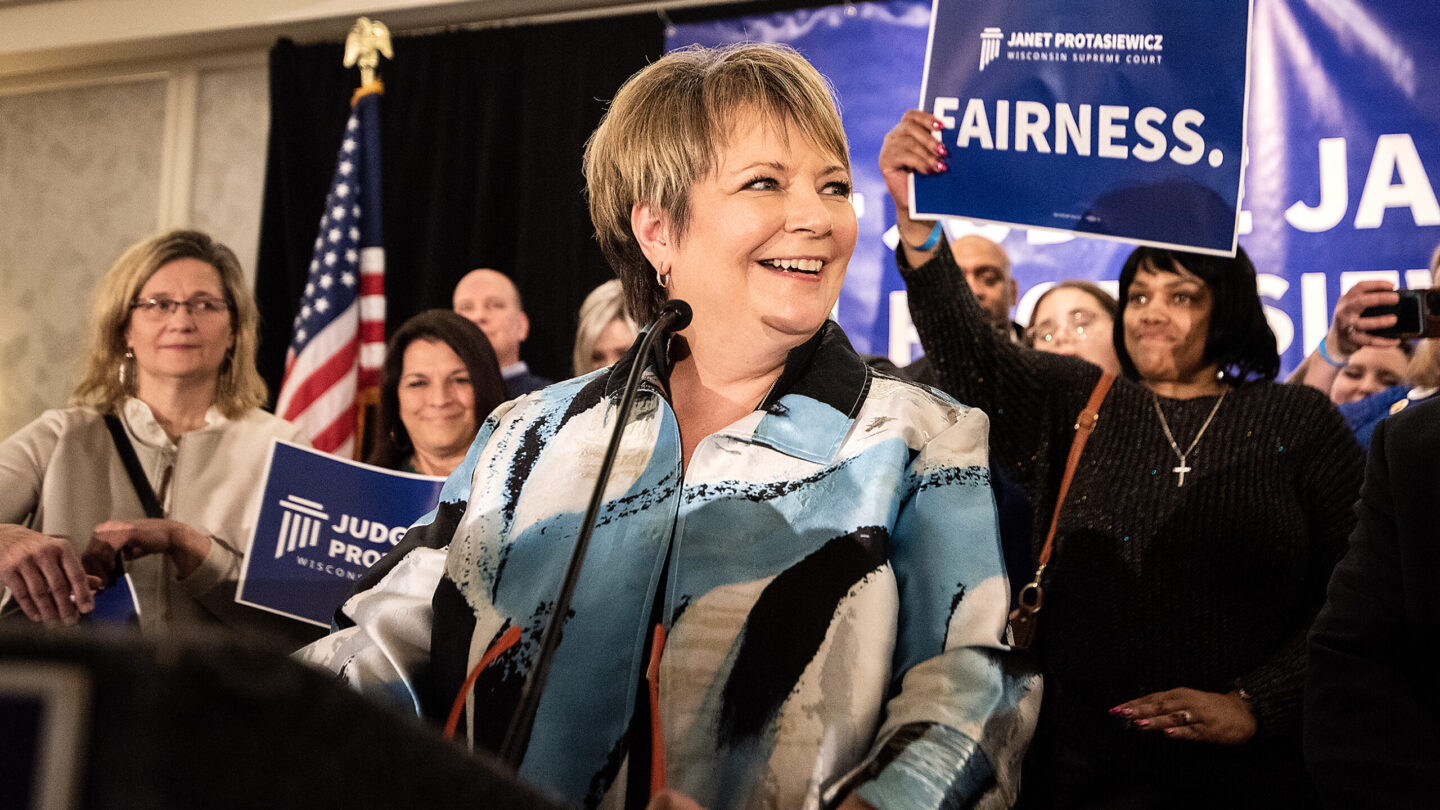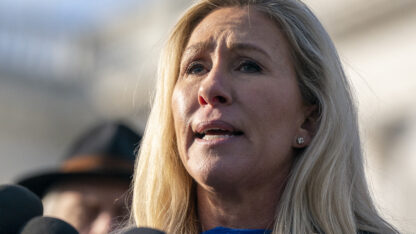Democrats have scored a major off-year election victory in Wisconsin, winning the state’s open supreme court seat and flipping control of the court to liberals for the first time in 15 years.
Milwaukee County Judge Janet Protasiewicz won the hotly contested race for the Wisconsin Supreme Court, according to a race call by The Associated Press, defeating former state Supreme Court Justice Dan Kelly. Spending in the campaign shattered the previous national record for a state supreme court election.
The win by Protasiewicz comes at a pivotal time for the court, and for the Democratic voters who carried her to office. Justices are all but certain to hear a challenge to Wisconsin’s pre-Civil War abortion ban, and with a liberal majority, they’re likely to consider a lawsuit that could overturn Wisconsin’s Republican-drawn legislative maps.
Barring the unexpected, the victory also assures that liberals will hold a majority on the court ahead of next year’s presidential election, when Wisconsin — the perennial swing state — is expected to again be pivotal in the race for the White House. If election lawsuits are filed in state court, Protasiewicz will be one of the seven justices who have the final say.
Democrats’ high hopes
Should the court redraw the maps and give Democrats a better chance of winning races for the legislature, they hope they could finally push the state’s political trajectory to the left. The court could also potentially redraw Wisconsin’s congressional map, where Republicans currently hold six out of eight U.S House seats in an otherwise 50-50 state.
Protasiewicz was born and raised on Milwaukee’s south side, spending 25 years as a prosecutor in the Milwaukee County District Attorney’s office and most of the last decade as a judge.
While she never promised to rule one way or another on cases that come before the Supreme Court, Protasiewicz was especially open about her politics during the campaign. On the issue of abortion, she said she believed women have a right to choose. When it came to redistricting, she called the state’s Republican-drawn legislative maps “rigged.”
Her campaign also relied more than any in history on the Democratic Party of Wisconsin’s financial support, so much so that Protasiewicz vowed to recuse herself from cases involving the state party once she takes office.
Kelly’s loss and the money
Kelly downplayed his political views, but he brought a long Republican resume to the race. He was originally appointed to the court by former Republican Gov. Scott Walker in 2016. Most of Kelly’s career was spent as an attorney. In 2012, he defended Wisconsin’s Republican-drawn legislative maps in federal court. In 2020, after Kelly lost his first election, he returned to private practice, where his clients included both the state and national Republican parties.
Kelly’s biggest financial backers included Wisconsin Manufacturers and Commerce and a group called Fair Courts America, which is funded by GOP megadonor Richard Uihlein. Together, they spent more than $10 million on ads criticizing sentences handed down by Protasiewicz as a judge in Milwaukee County.
While money from Kelly and conservative groups came in heavy during the closing weeks of the campaign, Protasiewicz was able to counter with a fundraising haul that was previously unheard of in a judicial race, raising more than $14 million this year. The bulk of that money came in transfers from the state Democratic Party.
The race shattered the previous national record for spending in a state Supreme Court race. According to the Brennan Center for Justice, the old record of $15.2 million was set in a 2004 race for the Illinois Supreme Court. According to the center’s tracking, nearly $29 million had been spent on political ads in Wisconsin’s race. Another running tally by the Wisconsin political news site WisPolitics found total spending on the race had hit $45 million.
Protasiewicz will take office on Aug. 1 for a term that runs until 2033. Barring the unexpected, the next chance conservatives have to flip the court back will be in 2025.

9(MDAxODM0MDY4MDEyMTY4NDA3MzI3YjkzMw004))









